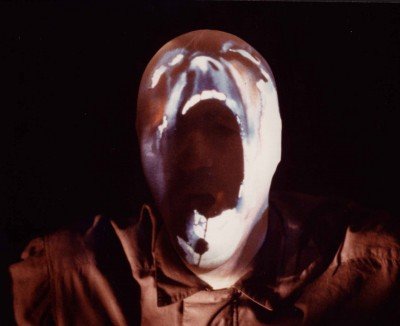Like many kids from my generation, I got into Pink Floyd as a teenager. All it took was a few late-night listening sessions with my friends for the psychedelic rock band to become one of my all-time favorites. Even now, decades later, they hold an unassailable position in my heart. Of course, their film, Pink Floyd: The Wall (directed by Alan Parker and written by band member Roger Waters), holds a special appeal to me as a movie fan. This week sees the film celebrate the 40th anniversary of its wide release in the US (September 17th, 1982), so I decided to take a look back.
Its themes of isolation and alienation have not been diminished by time and seem newly relevant. Anxieties about large-scale armed conflict, rising authoritarianism, and civil unrest now resonate with me in a compellingly modern way. Despite long years having passed since its release, the film feels depressingly fresh and topical.
Bob Geldof’s turn as sadly deranged rock star Pink is thoroughly engrossing despite the character’s, and film’s, lack of traditional dialog. It’s subtle but impressive work. I wouldn’t necessarily call this a musical even though music is integral to telling the film’s story. It’s more like a long-form music video. It’s also got an unconventional structure in that it cuts back and forth between Pink’s current descent into madness and pivotal moments throughout his life (especially his tender and traumatic childhood) while also making room for detours into an imaginary fascist dystopia. It’s abstract and stylized stuff that nevertheless feels clearly and competently communicated.
A huge part of the film’s visual appeal is the bravura animated sequences by Gerald Scarfe. At once mesmerizing and horrifying, they perfectly illustrate Pink’s inner anguish and darkest nightmares. The famous goose-stepping hammers call to mind both the hammer and sickle and the swastika in a chilling sequence warning against the threat of totalitarianism.
The music is outstanding, of course. It’s interesting that the movie is an adaptation of the band’s seminal 1979 album of the same name, but it uses alternate versions of some of the songs. It also includes a couple of songs that don’t appear on the album at all. In any case, even though I’ve heard most of the songs hundreds of times, I always find myself singing along.
Alan Parker’s Pink Floyd: The Wall weaves together some autobiographical details of Roger Waters’ life with the sad story of ex-band member (and so-called crazy diamond) Syd Barret along with Waters’ feelings about war, fame, and mental illness into a 95-minute rock and roll nightmare. Visually stunning, sonically appealing, and disturbingly still relevant, I was blown away all over again watching it recently. Despite a reportedly troubled production, the film has managed to stand the test of time. Highly recommended for fans of Phantom of the Paradise, 1984, and One Flew Over the Cuckoo’s Nest.
Michael Cavender




